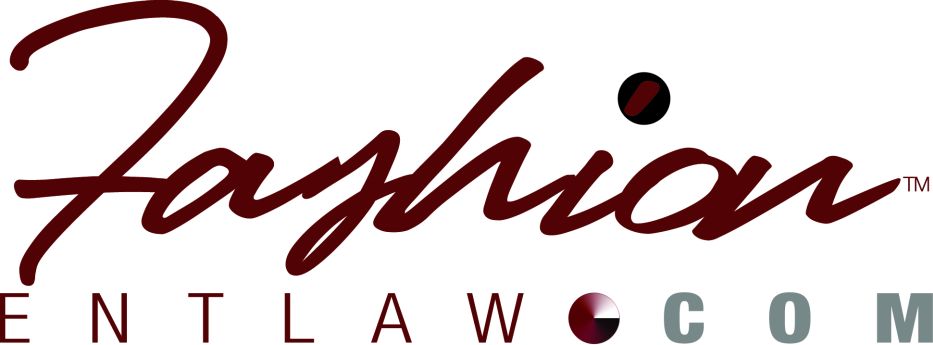 Too often in fashion, I find that many think they can get away with things others would not in your typical 9-5 work environment. There is an illusion that if you do fashion and you are in the creative field, especially as a fashion designer, anything goes. Well, the truth is, that is a myth. The fashion industry and its employees are governed by employment laws in the respective countries they work in, like everyone else.
Too often in fashion, I find that many think they can get away with things others would not in your typical 9-5 work environment. There is an illusion that if you do fashion and you are in the creative field, especially as a fashion designer, anything goes. Well, the truth is, that is a myth. The fashion industry and its employees are governed by employment laws in the respective countries they work in, like everyone else.
The hottest news coming off the press is that British Designer John Galliano who designs for Christian Dior has been fired for his anti-semitic statements he made towards a couple in a bar in Paris recently. In France, making anti-semitic remarks is punishable by up to six months in prison. Indeed, Dior was arrested last Friday for his statements.
“I love Hitler, people like you (Jewish people) will be dead by now. . .” was what Galliano was caught on tape saying in his drunken state of mind.
Before we focus on the employment law issues raised here, there is another big one to discuss very briefly; criminal law. Fashion, employment and criminal laws all intersect at once, no joke. But then, Galliano has always been full of drama and we need not expect an exception just because he is in trouble.
Criminal Law: In the USA, when a defendant commits a crime, the DA (prosecutor) must show : 1) the defendant committed an act; 2) the defendant had the relevant state of mind or intent at the time of the act to commit the offense; 3) both the physical act and mental state of mind existed at the same time when the crime was committed; and 4) all of the aforementioned caused the defendant to act in a way that caused injury to the alleged victim(s). Here, the facts show that Galliano was intoxicated when he made his remarks. What does this mean specific to #2 requirement i.e. the requisite state of mind if he were in the USA? Is intoxication a defense to his actions?
In the USA, if Galliano’s statements were a crime that requires he have an intent or knowledge, then he can say, “look I was intoxicated.” If, however, his statements do not require that he have the intent or knowledge i.e. all he has to do is be reckless or negligence, then he can’t raise an “I was drunk” defense to negate his alleged criminal act.
Now let’s focus on the employment law issues raised.
For Fashion Professionals, a few things you should know.
First, if you are an employee, your employer must have a legitimate business reason for firing you. This means, for example, they can’t fire you because of your race, age, gender and sexual orientation.
Second, for employers, note that even if you fire an employee, as in the Galliano case, it does not stop the employee from deciding to sue you. Galliano has retained an attorney and plans to sue his ex-employer in court for defamation, among other causes of action. See UDUAK LAW FIRM BLOG Defamation analysis where public figures are involved here.
Third, employers cross your i’s and dot your t’s. Make sure you have revisited the agreement you executed with your employee and you understand all terms. Make sure all of your communications from your employee handbook to your written policy is clear on what will be the basis for firing. Interesting here is that Galliano was not at work but on his own time getting drunk yet he is fired. Can Dior do that?
If you are an employee and you are off duty, if you commit a crime or make racist remarks what business is it of your employer’s? The answer is, it depends. John Galliano is a public figure. If Dior takes him back, sales will tank and it is, overall, a horrible message to send to their customer base. As it stands, given the facts, Galliano is a huge liability.
For Employees, When Can an Employer Fire You?
This is usually stated in your employee handbook and other written policies. It can range from drug and alcohol use at work to poor job performance or tardiness.
For Employers, When Do You Fire an Employee?
In Galliano’s situation,swiftly. Dior has a brand to protect and a business to run so the action had to be swift. Typically, however, employers will give employees notice and an opportunity to cure their actions through evaluations of work performance and at times more training.
Read the story by Suzy Menkes for The New York Times here.
Watch CNN’s report here.
Cheers,
Uduak

FASHIONENTLAW blog, authored by Ms. Uduak, was first established in 2010. It is now incorporated, in 2021, as part of the FASHIONENTLAW LAW FIRM blog. The blog is for informational purposes only and provides legal commentary and analysis on the intersection of mainstream America pop culture and the law. It also provides updates on Ms. Uduak’s speaking engagements and press activities. For inquiries on topics covered on this site, please get in touch with our firm. If you seek legal representation for your specific legal needs, please schedule a consultation.
📞Call 916-857-9970 or
🌐Email ([email protected])
💻 Schedule a consultation directly on this site.
